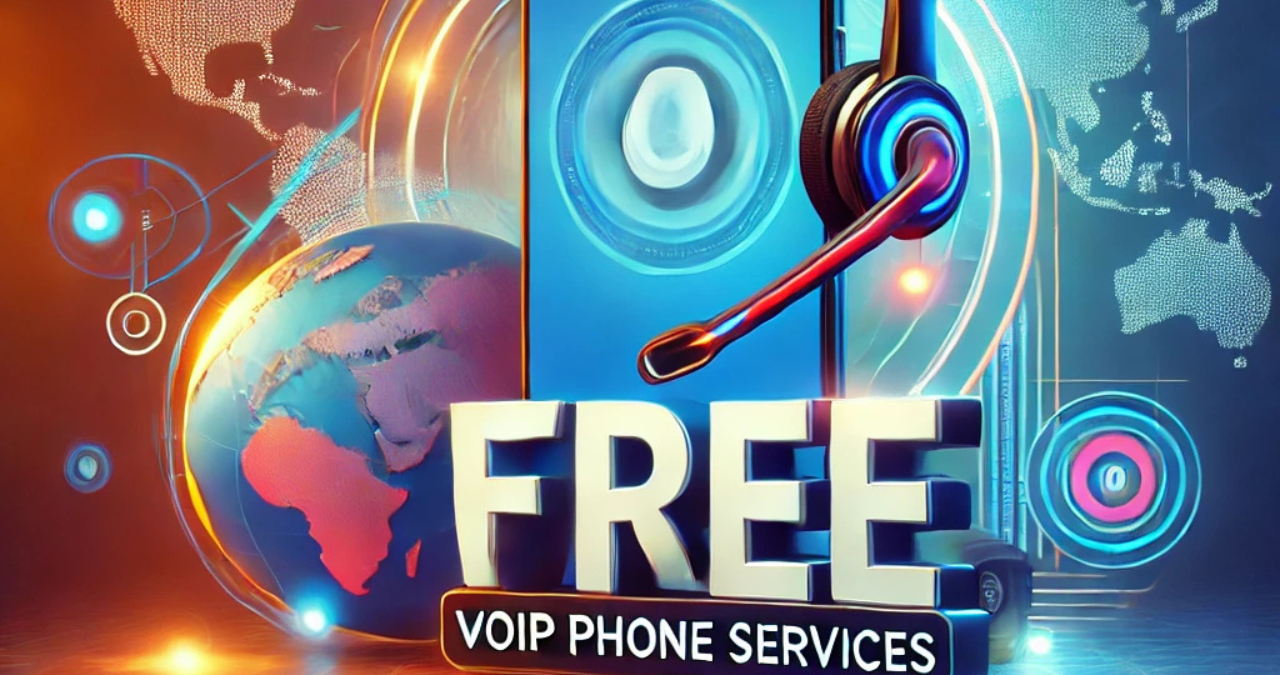Introduction
What is VoIP?
Free VoIP Phone Service over Internet Protocol (VoIP) has revolutionized the way people communicate. Unlike traditional phone systems that rely on dedicated lines, VoIP uses the internet to transmit voice data, making it more versatile and cost-effective. With Free VoIP Phone Service, voice signals are converted into digital packets, sent over the internet, and reassembled at the recipient’s end. This technology eliminates the need for physical telephone lines, enabling users to make calls from anywhere with an internet connection.
Free VoIP Phone Service gained traction in the early 2000s as broadband internet became widely available. Today, it’s a staple in personal, business, and global communication, offering seamless integration with modern devices and platforms.
Why Consider Free VoIP Services?
Free VoIP Phone Service are attractive for individuals and businesses looking to reduce costs without compromising connectivity. They offer flexibility, allowing users to make calls across the globe without incurring hefty fees. Whether you’re catching up with a friend overseas, coordinating a remote team, or running a startup on a budget, Free VoIP Phone Service can meet your needs.
These services also cater to diverse scenarios, from personal use to professional setups. With features like voice and video calling, messaging, and conferencing, free VoIP solutions provide an excellent entry point for users new to internet-based telephony.
Overview of Free vs. Paid VoIP Services
While free VoIP services deliver substantial value, they often come with limitations. Paid options typically offer enhanced features like higher call quality, advanced analytics, and priority customer support. Free VoIP is ideal for light to moderate usage, making it perfect for individuals and small teams. However, businesses with complex communication needs might benefit from investing in premium plans.
How Free VoIP Phone Service Work
Understanding the Technology
Free VoIP services function by leveraging the internet to transmit voice data. Instead of using traditional telephone lines, they utilize SIP (Session Initiation Protocol) and RTP (Real-Time Transport Protocol) to manage and deliver calls. VoIP requires a stable internet connection, as latency and jitter impact call quality.
The technology relies on codecs to compress and decompress voice signals for efficient transmission. Popular codecs like G.711 and G.729 balance quality and bandwidth efficiency, ensuring clear communication even on average connections.
Essential Hardware and Software
To use free VoIP services, you only need a few essentials. Most smartphones, laptops, and desktop computers are VoIP-ready with built-in microphones and speakers. External microphones and headsets are recommended for enhanced quality. While not mandatory, VoIP-specific phones offer a more traditional experience with internet-based calls.
Software-wise, users can choose from various apps and platforms. Popular options include Skype, WhatsApp, and Google Voice, which provide user-friendly, seamless communication interfaces. These applications are typically free to download and use, requiring only an account and internet connection.
The Role of Service Providers
VoIP service providers act as intermediaries, managing call routing, data transmission, and other backend operations. They ensure calls are securely transmitted between users, even when spanning different devices and networks. While free providers offer robust services, their scope may be limited compared to premium counterparts, particularly regarding call duration, geographic reach, and support.
Features of Free VoIP Phone Services
Standard Features
Free VoIP services come with an impressive range of standard features. Voice calling is the primary offering, allowing users to connect with anyone worldwide. Text messaging and voicemail are also typically included, enabling comprehensive communication solutions in one platform. Caller ID ensures users can screen calls effectively, while voicemail provides an option to capture missed calls.
Advanced Features in Some Free Plans
Many free VoIP providers offer extras beyond basic features, such as video calling, call forwarding, and conferencing. Video calling is particularly useful for personal connections and professional meetings. Call forwarding ensures you never miss important calls, while conferencing supports collaboration among multiple participants.
Integration with other tools is another valuable feature. For example, some VoIP platforms sync with calendars and contact lists, streamlining workflows and enhancing productivity.
Geographical and Usage Limitations
Free VoIP services often have limitations that vary by provider. Some restrict availability to specific regions, while others impose caps on usage to manage server loads. These constraints make it crucial to assess your needs before committing to a platform. For instance, if you frequently make international calls, verify that your chosen service supports the desired destinations.
Best Free VoIP Phone Service Providers in 2024

Top Platforms to Explore
Several free VoIP providers stand out in 2024 for their reliability and features:
- Skype: A pioneer in VoIP, offering voice, video, and group calls.
- Google Voice: Ideal for U.S.-based users, providing free calls and voicemail transcription.
- WhatsApp: Popular for its simplicity and global reach, supporting voice and video calls.
Specialized Services
Platforms like Zoho Meeting and RingCentral Lite offer tailored solutions for businesses, including conferencing and integration with CRM tools. These options are ideal for startups and small teams seeking professional-grade services without significant costs.
Case Studies
Many individuals and businesses have successfully leveraged free VoIP services. For instance, a remote team used Google Voice to coordinate multiple time zones, saving hundreds of international calling fees while maintaining productivity.
Pros and Cons of Free VoIP Phone Services
Advantages
Free VoIP services offer unmatched cost savings, eliminating the need for traditional phone lines and call charges. They’re also incredibly accessible, requiring only an internet connection and a compatible device. Furthermore, VoIP reduces environmental impact by minimizing reliance on physical infrastructure.
Disadvantages
Despite their benefits, free VoIP services come with drawbacks. Call quality can vary due to internet fluctuations, and free plans often lack advanced features like encryption and priority support. These limitations make them less suitable for sensitive or high-stakes communications.
Tips to Maximize Benefits
To maximize free VoIP services, choose a provider that aligns with your needs. Use wired setups or high-speed Wi-Fi to optimize your internet connection. Additionally, consider investing in quality audio equipment to enhance call clarity.
Conclusion
Free VoIP services transform communication by offering cost-effective, flexible, and accessible solutions. Whether you’re an individual looking to save on phone bills or a business exploring remote collaboration tools, there’s a free VoIP option for you. While limitations exist, the benefits often outweigh the downsides, making free VoIP a worthy choice for modern communication needs.
Frequently Asked Questions (FAQs)
- What is the difference between free and paid VoIP services?
- Free VoIP services offer basic features, while paid plans include advanced options like higher call quality and customer support.
- Do free VoIP services work without an internet connection?
- No, VoIP requires a stable internet connection to function.
- Are free VoIP calls secure?
- Security varies by provider; some offer encryption, but others may lack robust security measures.
- Can I use free VoIP services for business purposes?
- Yes, but consider limitations like call quality and support when using them for professional needs.
- What is the best free VoIP service for international calling?
- Google Voice and Skype are popular options.
You May Also Read: https://timebusinesswork.com/betechit-tech-news/

Leave a Reply